Hong Kong leader Carrie Lam on Tuesday said she hoped that the opposition would not “demonize and stigmatize” the new national security law as doing do would mean pitting themselves against the people of Hong Kong.
“The people of Hong Kong want to see stability again, they want a safe environment where they can work and live,” Lam told reporters.
Lam said people were “sick and tired” of violence in Hong Kong and intervention by foreign forces in the city.
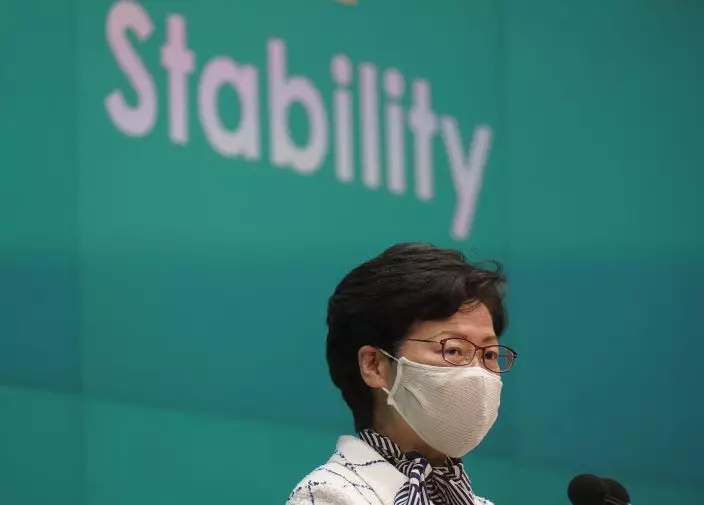
Hong Kong Chief Executive Carrie Lam listens to reporters questions during a press conference in Hong Kong, Tuesday, June 16, 2020. Lam urged people to support a controversial national security law to be imposed by Beijing, while at the same time confessing that she couldn't explain the details of it.(AP PhotoVincent Yu)
China’s ceremonial parliament in May approved the decision to enact a national security law in Hong Kong, aimed at curbing subversive, secessionist, terrorist and foreign intervention activities in the city following months of anti-government protests last year.
“We are part of the People’s Republic of China but we don’t have a mechanism to protect national security,” said Lam. “This is a risk not just to over 7 million people in Hong Kong, it’s also a risk to 1.4 billion people in the country.”
Lam spoke ahead of a meeting this week by the Standing Committee of the National People’s Congress, which exercises legislative power in China. The law is not on the meeting's agenda, but Hong Kong delegate Tam Yiu Chung said in an interview Monday that items could be added.
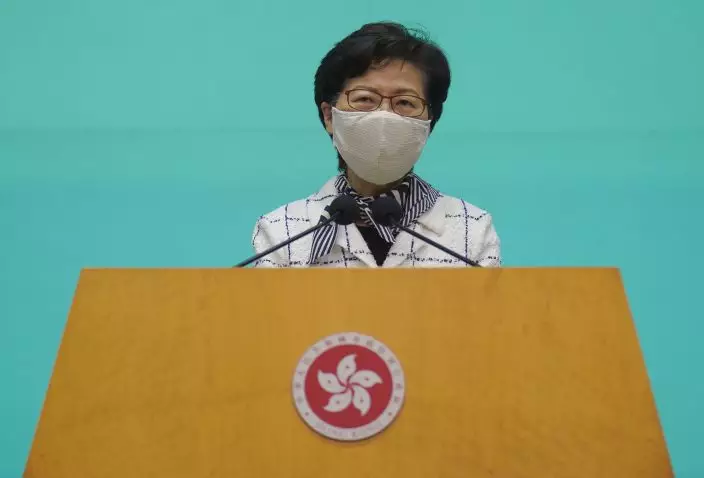
Hong Kong Chief Executive Carrie Lam listens to reporters' questions during a press conference in Hong Kong, Tuesday, June 16, 2020. Lam said she hoped that the opposition would not “demonize and stigmatize” the national security law as doing do would mean pitting themselves against the people of Hong Kong. (AP PhotoVincent Yu)
Critics consider the imminent legislation an attack on the “one country, two systems” framework in which China promised Hong Kong a high degree of autonomy and freedoms not found on the mainland. They fear that the law will be used to curb any dissent in Hong Kong.
Details about the law have not been disclosed though Lam said the specifics will be established. She said people “don’t need to worry” about this because at the end of the day, it is for Hong Kong’s authorities to enforce the law.
“Please accept and understand why we have to do it,” she said. “The only purpose of this task is to protect Hong Kong and the country.”
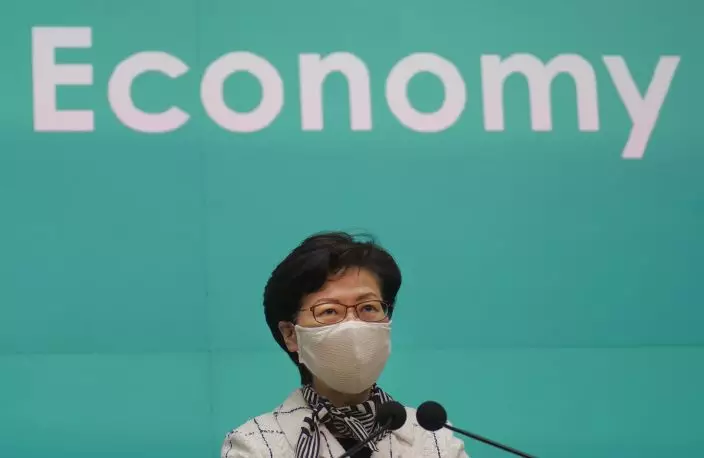
Hong Kong Chief Executive Carrie Lam listens to reporters' questions during a press conference in Hong Kong, Tuesday, June 16, 2020. Lam said she hoped that the opposition would not “demonize and stigmatize” the national security law as doing do would mean pitting themselves against the people of Hong Kong. (AP PhotoVincent Yu)
The anti-government protests had subsiding during coronavirus restrictions but have returned to the city in recent weeks, even though social-distancing measures remain in place.
Lam said Hong Kong will relax its measures gradually.
“It would be risky if we completely lift the measures. In recent times in some cities such as Beijing, we have seen imported cases and some countries have seen an influx of cases after relaxing measures,” she said.
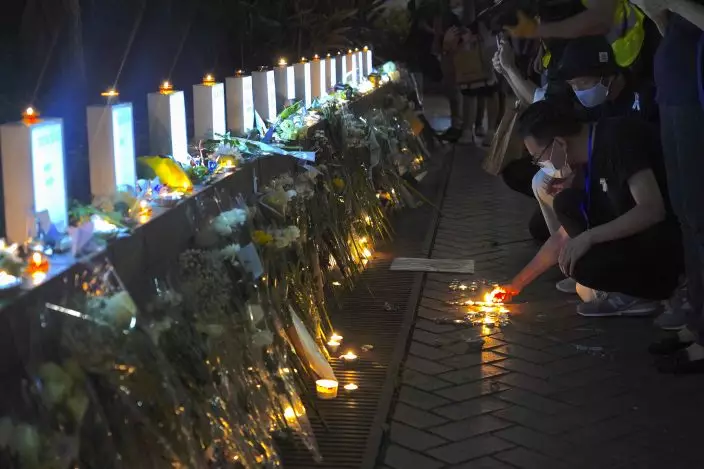
Mourners light candles as they pay respect at the site to mark one year memorial where a man fell to his death after hanging a protest banner against the extradition bill on the scaffolding of a shopping mall in Admiralty, Hong Kong, Monday, June 15, 2020. Protesters in Hong Kong got the government to withdraw extradition legislation last year, but now they're getting a more dreaded national security law, and the message from Beijing is that protest is futile. (AP PhotoVincent Yu)
The measures set to expire Thursday include a ban on public gatherings of more than eight people and limits on the capacity of restaurants and eateries.
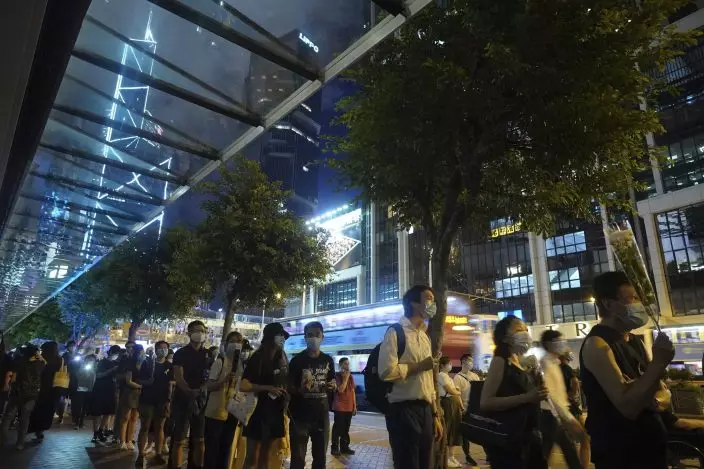
Mourners pay respect on the site to mark the one year anniversary where a man fell to his death after hanging a protest banner against the extradition bill on a building scaffolding in Hong Kong, Monday, June 15, 2020. Protesters in Hong Kong got the government to withdraw extradition legislation last year, but now they're getting a more dreaded national security law, and the message from Beijing is that protest is futile. (AP PhotoVincent Yu)
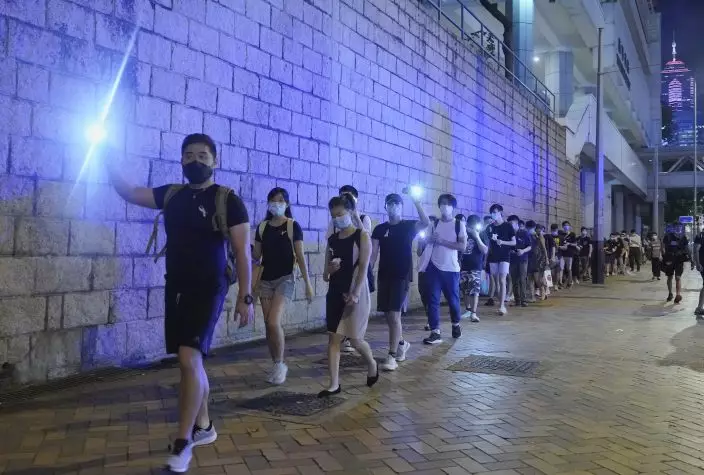
Protesters light their smartphone lights on the site to mark the one year anniversary where a man fell to his death after hanging a protest banner against the extradition bill on a building scaffolding in Hong Kong, Monday, June 15, 2020. Protesters in Hong Kong got the government to withdraw extradition legislation last year, but now they're getting a more dreaded national security law, and the message from Beijing is that protest is futile. (AP PhotoVincent Yu)
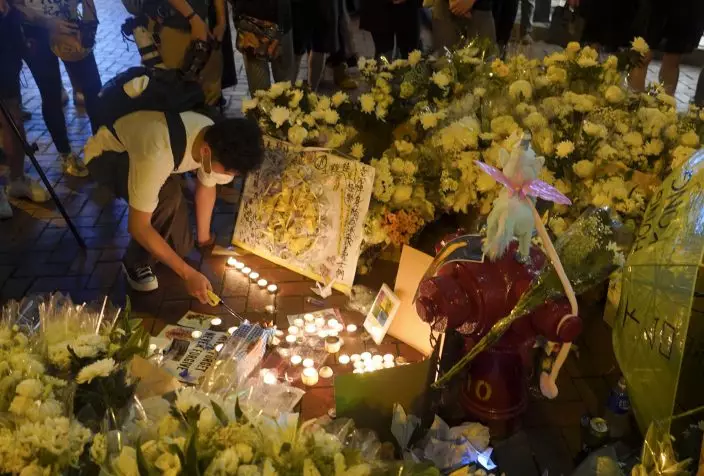
Mourners lay flowers as they pay respect on the site to mark the one year anniversary where a man fell to his death after hanging a protest banner against the extradition bill on a building scaffolding in Hong Kong Monday, June 15, 2020. Protesters in Hong Kong got the government to withdraw extradition legislation last year, but now they're getting a more dreaded national security law, and the message from Beijing is that protest is futile. (AP PhotoVincent Yu)
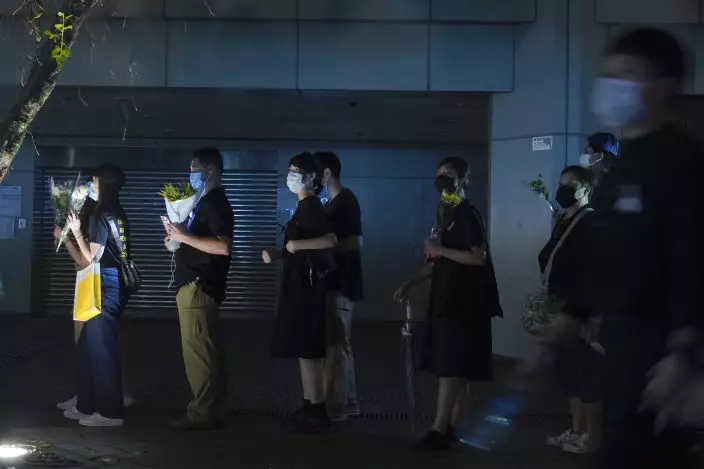
Mourners lay flowers as they pay respect on the site to mark the one year anniversary where a man fell to his death after hanging a protest banner against the extradition bill on a building scaffolding in Hong Kong Monday, June 15, 2020. Protesters in Hong Kong got the government to withdraw extradition legislation last year, but now they're getting a more dreaded national security law, and the message from Beijing is that protest is futile. (AP PhotoVincent Yu)


